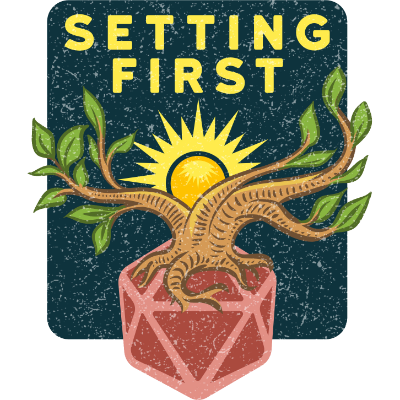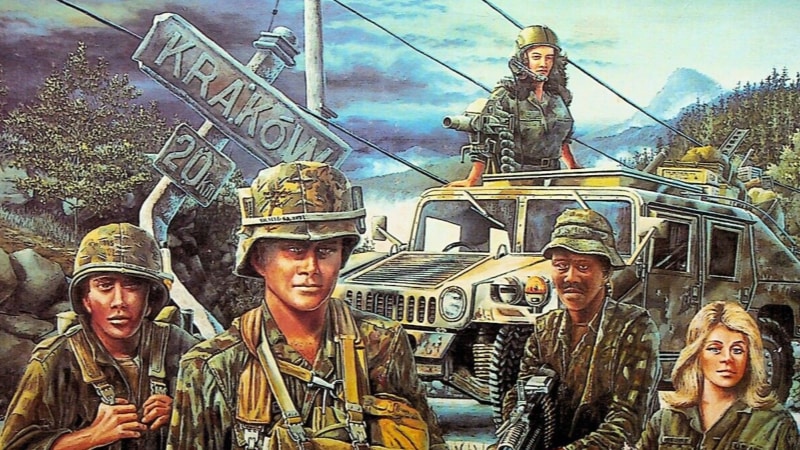
The new Twilight: 2000 seems to be tailor made for me, but I do wonder when I’ll get to run it.
Dance With Me
It’s 1984. Ronald Reagan is President, the USSR is boycotting the Summer Olympics in LA, and sixteen year-old me is hanging out in Game-A-Lot, perusing the latest offerings. My eyes are drawn to a new boxed set from GDW. The game is called Twilight: 2000, and the cover image tells me this is something unique.
A weary band of soldiers, modern soldiers, stands in front of a battered Humvee. They don’t look like conquerors. They look like survivors. What is this?
The back cover blurb neatly summarizes the game’s premise. The Third World War is grinding to a halt. The last command from HQ ends with, “Good luck. You’re on your own.” Characters must make their way through a bombed-out Europe, staying clear of radiation, bandits, warlords, and the remnants of Soviet combat units.
I’ve already been running post-apocalypse campaigns in my own setting using the Aftermath! rules for years. But Twilight: 2000 puts players in a world closer to our own. The apocalypse didn’t happen twenty years ago, or hundreds of years ago – it’s still in progress. And there are no plasma rifles or mutated rats. But there are M1 tanks and Mi-24 helicopters. It’s all so immediate, so visceral.
It doesn’t hurt that I’m a military history nerd who has been building scale models of armored vehicles for years. Though I’m horrified by the thought of war, I’m also fascinated by the military – the hardware, the tactics, the way people are changed by their experiences in uniform.
So yeah, Twilight: 2000 hooks me immediately. I run a few sessions for my friends, before we scatter to the four winds to attend different colleges. But I diligently buy all the supplements, spending money I should have been using for groceries, and I dream of running a long-term campaign. When the second edition is published, I buy it as well.
Open Your Eyes
Along the way I decide to major in International Relations and join Army ROTC. I run a handful of 2nd edition sessions with gaming friends, but never introduce the game to my ROTC buddies. Preparing to become military officers is serious business, and I don’t want to come across as a lightweight. I certainly don’t want to come across the way a cadet in my Basic Course did he threw out the “Every meal a banquet” line from Aliens in a spectacularly botched attempt to sound hard core.
During my three years on active duty I only game a few times, when I’m visiting friends back home on leave. The sessions I run are just like the ones I ran before – they’re about getting from Point A to Point B without getting ambushed, or about rescuing someone who is guarded by a squad of former Soviet soldiers. They’re not exactly high cinema, and I feel I’m running the game as intended, but I also feel like I’m not uncovering its full potential.
In 1992-93 I deploy to Somalia for Operation Restore Hope. Thankfully I don’t have to shoot anyone, and nobody shoots directly at me. It’s not a lengthy deployment, but it influences me profoundly.
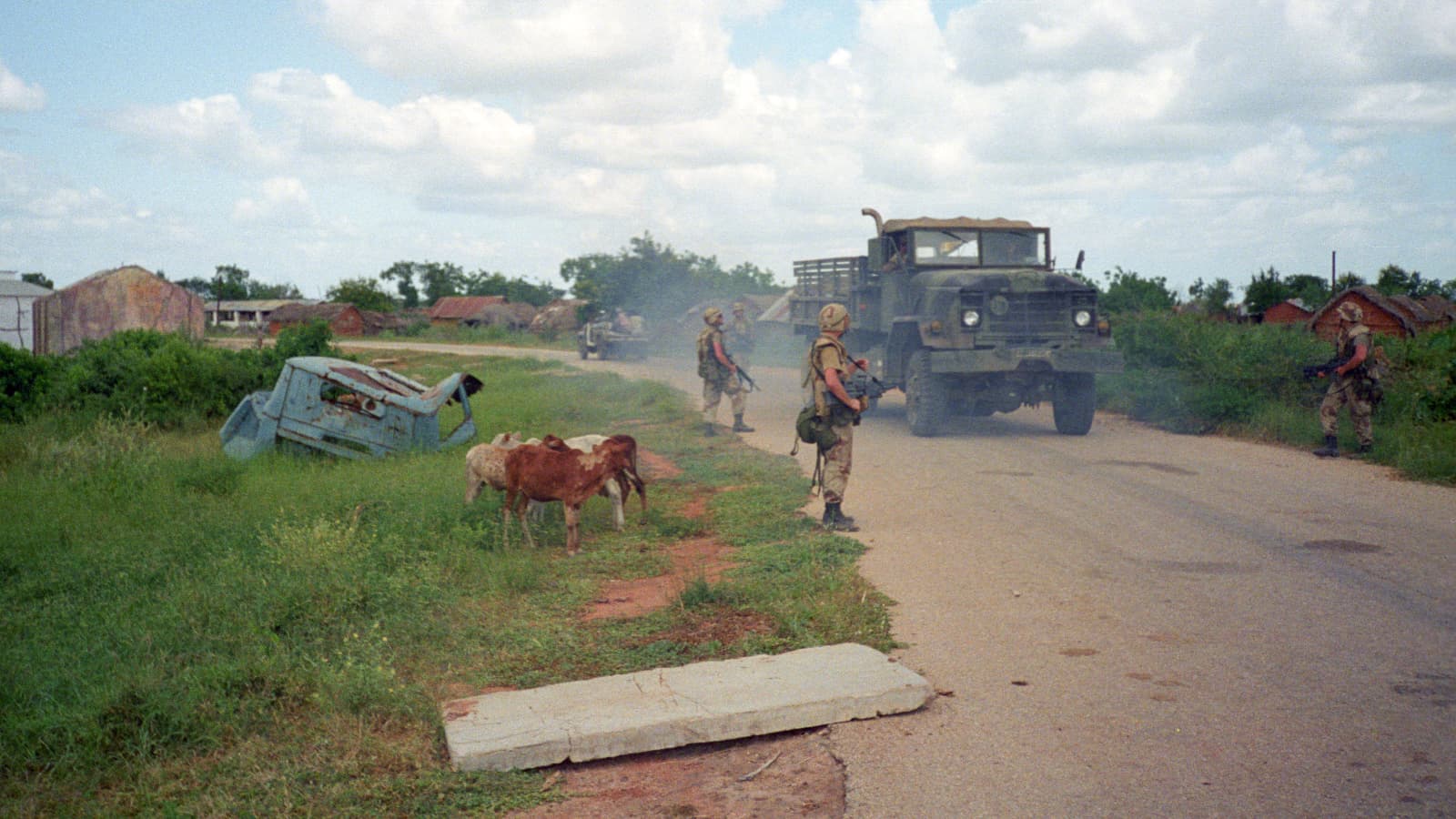
The devastation of famine on top of years of war makes the locals desperate for stability, for reliable access to food and clean water. But inter-clan animosities run deep. Clans don’t trust each other. They continue the cycle of tit-for-tat violence that the ousted dictator Siad Barre cultivated for decades. At one point we discover the half-buried remains of dozens of members of one clan, rounded up and murdered by another.
After that deployment I map my Somalia experience to Twilight: 2000. Now the hardware is less interesting to me. Flying around in a Blackhawk helicopter is cool as hell, no doubt. But T2K can be about something far more human and complex.
For example, how do characters make their way not just through a devastated landscape, but through a world where trust is vanishingly rare and precious, community comes where you can find it, and just surviving from one day to the next is a victory? How do people make it through all of that and maintain hope? How do they lay the foundations, however thin, for a better future?
When Blood Runs Cold
Years later I’m out of the Army, and I convince my new gaming group to let me run a Twilight: 2000 campaign for them. I’m excited to marry the rule to my ideas about what a T2K campaign can be, but with the perspective of years of gaming I find the old setting books to be underwhelming. So I come up with my own backstory and details for what happened to the United States, and I start the campaign with the PCs returning home on a container ship.
We wind up cycling through T2K 2.2 and Twilight: 2013 (the almost-forgotten third edition of the game), before finally settling on an altogether different system, Nemesis, to finish the campaign. All’s well that ends well, but the experience leaves me wishing there were an up to date system for Twilight: 2000. Given GDW’s track record with licensing, I figure it’s a lost cause.
The Seducer
Amazingly, a few years later Free League gets a license to create a new version of the game. I’m a military veteran from the very era in which T2K is set. I’ve played the previous versions of the game, and I love the Year Zero Engine. It’s like this game was made for me. Yeah, jumping into the Kickstarter for this one is a no-brainer.
As physical artifacts the boxed set and its Urban Operations companion meet Free League’s usual high standards. The boxes are sturdy, the book layout is clean without being boring, and while the art evokes the feel of earlier versions it is better-executed and more consistent. The stand-alone maps, dice, and tokens are all excellent.
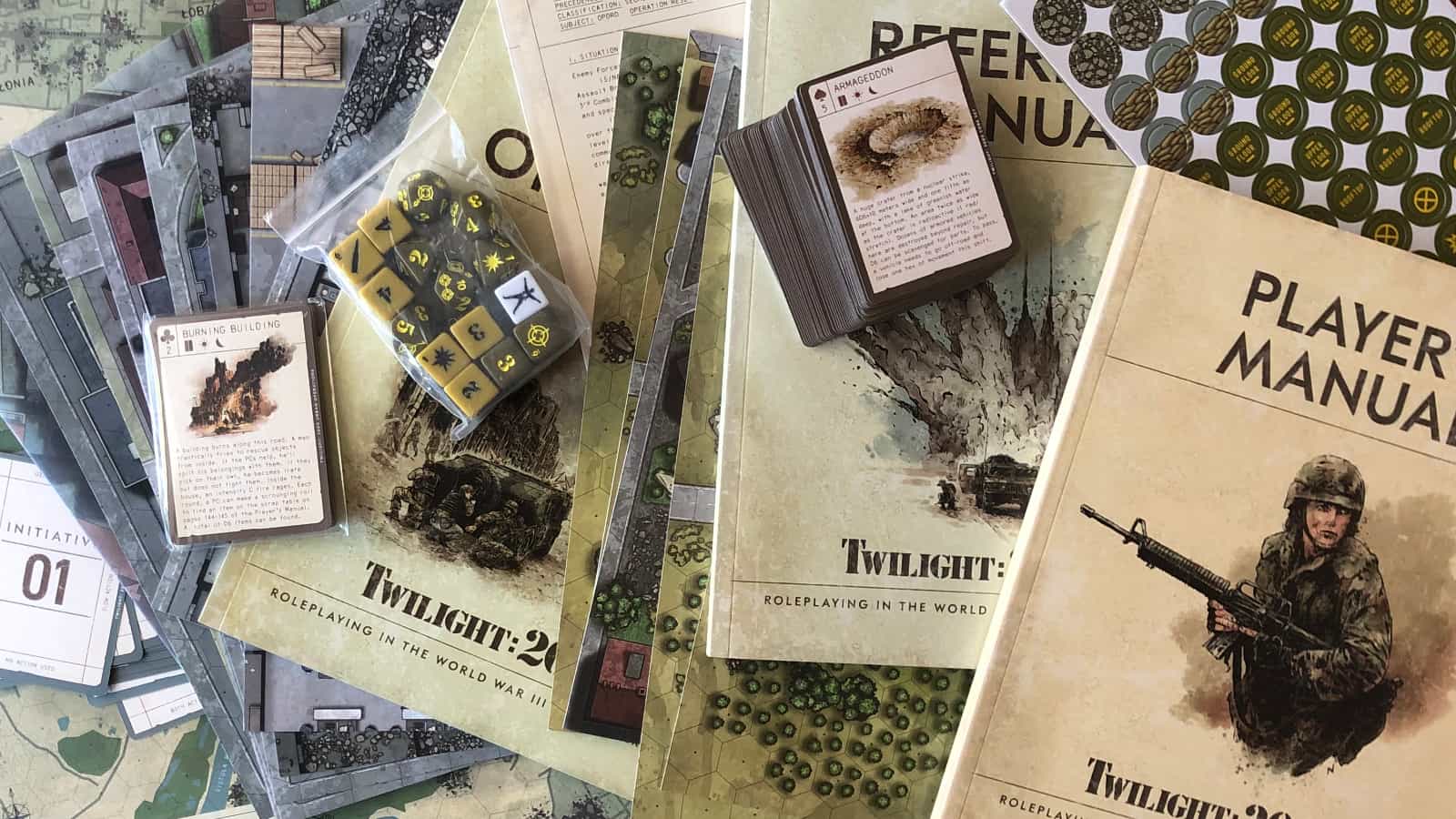
Russian Roulette
Before I go any further, let’s address the T-90 in the room. The timing of this release, through no fault of Free League’s, was terrible. Putin’s full-scale invasion of Ukraine kicked off just three months after the game’s release.
I’ve read commentary to the effect that it’s insensitive to be playing a game about WW III in Europe right now. And I understand that the game is too on the nose for many people. Escaping a messed up reality by playing a game set in a very similar messed up reality may not really be a form of escape at all.
I look at the game through a different lens. When the first edition came out, the US had been engaged in a proxy war with the Soviets in Afghanistan for several years. The game’s second edition was released just months before Operation Desert Storm and the beginning of the Croatian War of Independence.
Twilight: 2000 has been fairly unflinching. Yes, it arguably downplays the effects of nuclear war. But it’s always been a game about what happens when a worst-case scenario unfolds. And across the publishing history of the game in its various incarnations, people have been fighting and dying in wars all over the world, including the grisly unraveling of Yugoslavia.
I wish war weren’t a constant of human existence, but all evidence points to the contrary. So if you’re interested in a fictional Third World War via tabletop roleplaying, now is no better or worse a time to do so, and it doesn’t make you insensitive to the plight of the Ukrainian people, any more than playing Behind Enemy Lines makes you insensitive to the plight of the millions of civilians and combatants who died in WWII.
Question of Temperature
Free League was clever to put their version of T2K in an alternate timeline, one in which the 1991 attempted coup d’état by Soviet hard-liners actually succeeded. This liberates the game from the need to constantly revise the timeline, as previous editions struggled to do, and allows Free League to take the setting in whatever direction they choose.
They were also smart in avoiding earlier editions’ obsession with detailing which armies were doing what on the other side of the globe. Would soldiers trapped in the burning embers of Europe know about, much less care about the specifics of what was happening in Pretoria or Perth? Probably not. The book provides enough detail about the situation in Poland (and Sweden, the alternate setting), while leaving room for additional setting books and homebrew material. The robust Free League Workshop ecosystem testifies to the viability of the latter.
As with previous editions, player characters are part of the US Army’s 5th Infantry Division, as the last scraped-together offensive of the war in Europe ends in disaster. PCs don’t have to be US military – they can be civilians helping the Army, spooks or special operators, even defectors from Warsaw Pact units.
Each player character is given a Moral Code and a Big Dream by the player. These choices are reinforced mechanically in the awarding of experience points for adhering to those internal motivations, especially when doing so isn’t easy. I’ve seen the value of similar approaches in other games, and could see myself leaning hard into these as a GM.
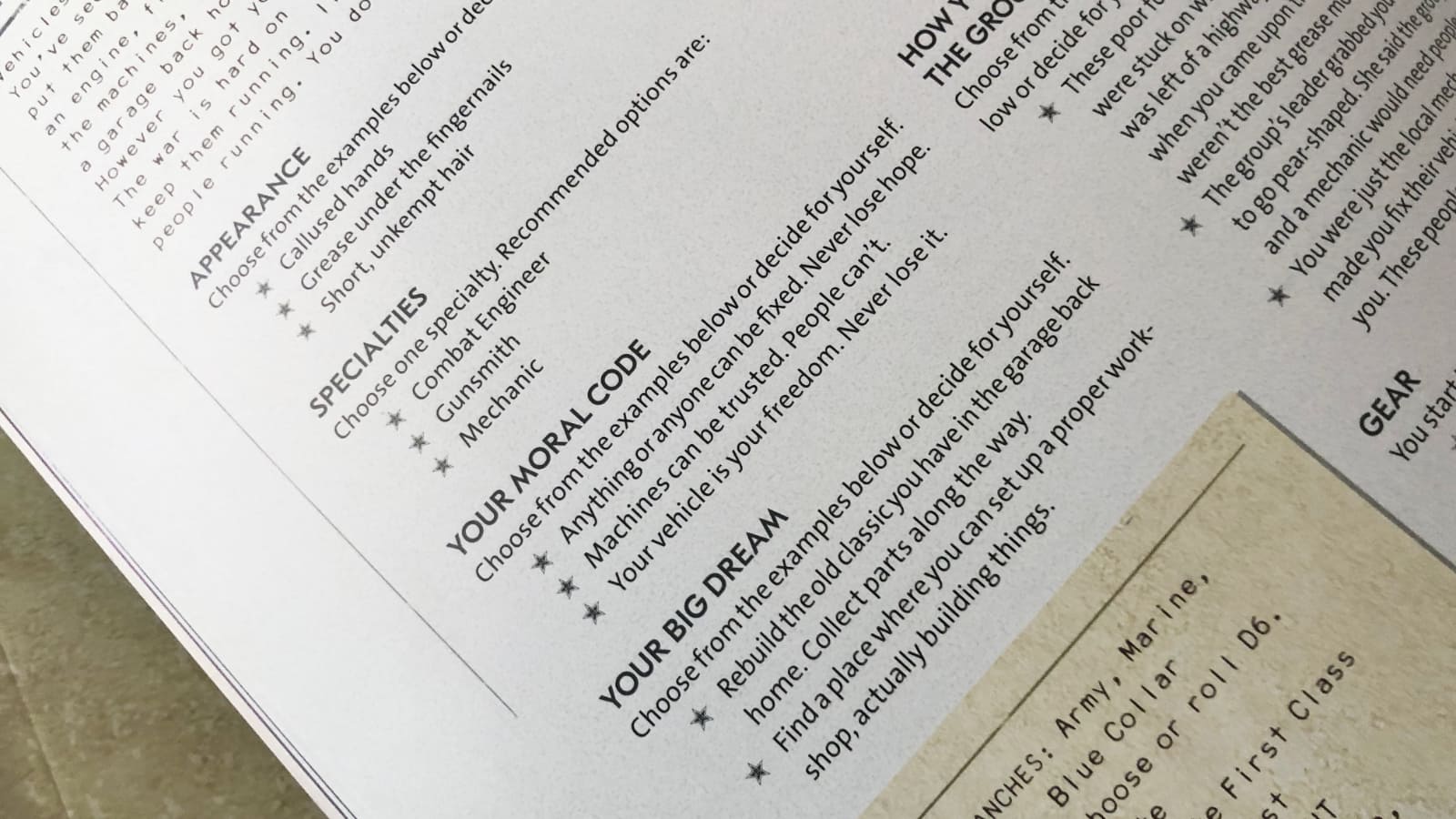
The core dice mechanic – try to roll a 6 or higher, using an attribute die and a skill die, the die type for each being a reflection of capability – is nice and clean. Modifiers for various situations are straightforward, and overall this version of T2K appears to nicely balance granularity with ease of use.
Livin’ On Livin’
I’m not sure there will ever be a game as perfectly tailored to my interests and life experience. That said, it may be a while before I’ll get to run Twilight: 2000. We’re deep into a long-running Degenesis campaign, and one of the other players, who is a fantastic GM, is threatening to start a zombie campaign using Free League’s The Walking Dead rules.
Perhaps I’ll fire up a side campaign with another group of players, but one of my life rules is that if you’re adding something to your plate, you need to remove something else, lest your enthusiasms become burdens. So we’ll see what happens.
In the mean time, I’m looking forward to collecting more T2K books as Free League cranks ’em out.
Ω
